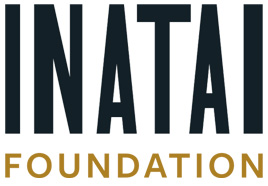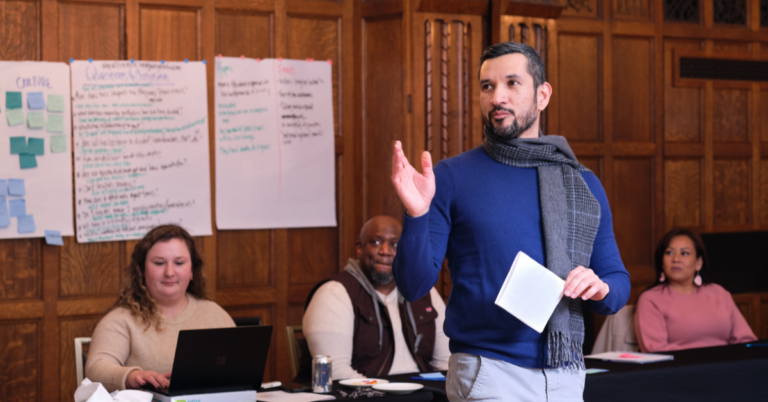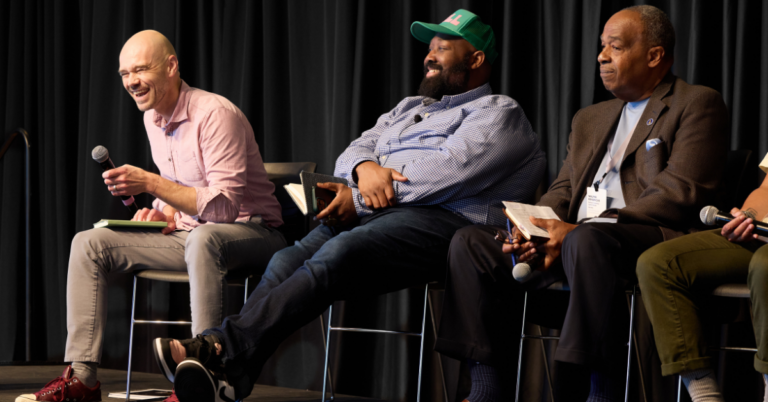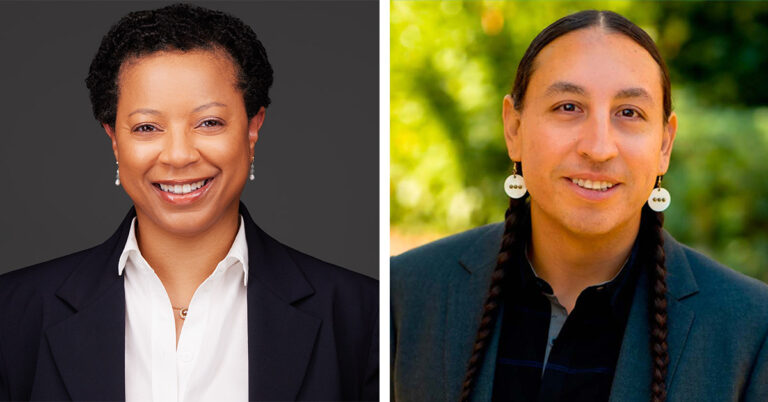Until Feb. 1, 2023, we were Group Health Foundation. This post was written under our former identity. To learn more about our new name, read our announcement here.
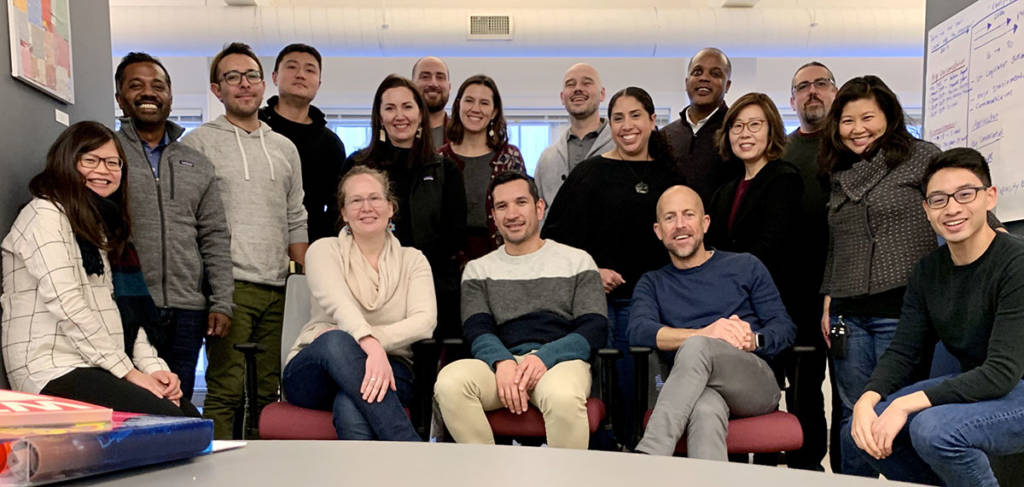
Group Health Foundation staff during our January in-office retreat.
Our entire country is heading into some of the toughest days and weeks in many of our lifetimes. With every news headline we are reminded how this pandemic has deepened inequities based on race, ethnicity, wealth, geography, and ability. Community-based organizations—and the essential role they play in creating change—are as important as ever in these challenging times.
This has been a core belief of Group Health Foundation since our establishment just a few years ago. Even though we are a young foundation, in the process of developing our own capacity and discovering what we still need to learn, our greatest strength has been the relationships we have begun to cultivate across Washington. We are deeply grateful to the more than 300 leaders, organizations, and tribal nations throughout Washington’s 39 counties who welcomed us to their communities over the last two years. These connections have allowed us to be a nimble and flexible funder in this time of great urgency and uncertainty.
In the early days of COVID-19—and before its magnitude was known—we created an Equitable Response and Recovery Fund and deployed $5 million in direct and flexible funding to more than 75 organizations. Earlier this week, we committed nearly $9 million in multiyear, general operating funds to an additional 45 organizations whom we met but were unable to fund in 2019.
As we reached out to grantees, we were not surprised to learn that many of them started their response efforts even before the pandemic was officially declared. Many were stretching resources to provide immediate needs including childcare, food and supplies, technology access, and culturally specific information. Others worked to influence government at all levels. We heard about a leader who coached their local government on policy measures to protect their community from the outbreak and another group who became a national leader on disability rights.
The organizations we have funded are culture- and identity-specific, multiracial, and committed to health equity. They are led by people of color, people with disabilities, immigrants and refugees, Indigenous people, members of the LGBTQIA+ community, people with lived experiences with poverty, and more. In every county across the state, we have supported organizations whose board and leadership are racially diverse, income diverse, and accountable to their communities.
As the Foundation adapts to a new future, we are committing at least $20 million in additional grants this year to continue supporting the same nonprofits we always have: those whose leadership and board are reflective of the communities they serve. Another constant will be our commitment to offering funds for flexible, general operating support. Although we will not be issuing requests for proposals (except for our Event Sponsorships fund, which remains open), we would appreciate your insights about communities who are over-impacted and underserved and organizations that are aligned with our equity priorities. We invite you to do so through our contact form. We review every message we receive.
Not having a competitive proposal process may mean that we will miss certain organizations across the state. We recognize that even though we have relationships in all Washington counties, we have yet to connect with all the communities, organizations, and leaders we had hoped to meet this year. Our team does not take these considerations lightly and are working diligently to reimagine what our community engagement might look in the coming months.
We are grateful for your partnership at a time when organizations that are critical to future recovery need it most. Along with you, we are paying close attention to COVID-19’s long-term impact and thinking how we can best respond to the long-standing structural inequities that this crisis has laid bare.
